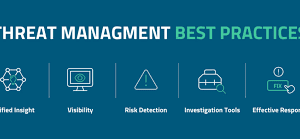Natural disasters like floods, hurricanes, earthquakes, and wildfires are devastating to human life and property. They can cause damage to homes, buildings, and infrastructure, but they can also disrupt the natural ecosystems in which pests thrive. In the aftermath of a disaster, controlling pests is critical for maintaining public health and safety. pest control columbus oh are essential for maintaining a clean and healthy environment in your home or business.
In the aftermath of a natural disaster, people are often focused on restoring power, water, and other essential services. However, one often-overlooked aspect of disaster management is pest control. Pests can carry diseases, damage structures, and cause other problems that can exacerbate the impact of a disaster.In this article, we’ll discuss the importance of pest control in disaster management and explore some effective strategies for managing pest populations in the wake of a natural disaster.
The Importance of Pest Control in Disaster Management
Public Health
Pests like mosquitoes, rodents, and other disease-carrying insects can thrive in the aftermath of a disaster. Controlling these pests is critical for preventing the spread of diseases like malaria, dengue fever, and West Nile virus. In addition, pests like rats and mice can carry diseases that can be transmitted to humans through their droppings, urine, or bites. Effective pest control measures can help prevent the spread of these diseases and keep people safe.
Structural Damage
Pests like termites, carpenter ants, and other wood-destroying insects can cause significant damage to homes and buildings. In the aftermath of a disaster, these pests may be attracted to damaged or weakened structures, making them even more vulnerable to damage. Effective pest control measures can help prevent further damage to structures and ensure that homes and buildings are safe to inhabit.
Food Safety
In the aftermath of a disaster, food safety can become a significant concern. Pests like rodents and insects can contaminate food and spread diseases like salmonella and E. coli. Effective pest control measures can help prevent food contamination and ensure that food supplies remain safe for consumption.
Environmental Impact
Disasters can disrupt the natural ecosystems in which pests thrive. Floods, hurricanes, and wildfires can destroy the habitats of many pests, forcing them to seek new sources of food and shelter. Effective pest control measures can help prevent these pests from taking over new areas and damaging the local ecosystem.
Strategies for Managing Pests in Disaster Zones
Integrated Pest Management
Integrated Pest Management (IPM) is a holistic approach to pest control that focuses on prevention and non-toxic pest control measures. IPM involves a combination of techniques, including monitoring pest populations, identifying the root causes of pest problems, and using non-toxic pest control methods like traps and pheromone baits. This approach is particularly effective in disaster zones, where traditional pest control methods may not be practical or safe.
Sanitation
Sanitation is a critical aspect of pest control in disaster zones. Removing debris, standing water, and other potential breeding grounds for pests can help reduce pest populations and prevent the spread of disease. In addition, proper food storage and waste disposal can help prevent food contamination and attract fewer pests.
Structural Repairs
Structural repairs are essential for preventing further damage to buildings and homes. Repairing damaged roofs, windows, and other entry points can help prevent pests from entering homes and buildings. In addition, sealing cracks and gaps in walls and foundations can help prevent pests from gaining access to structures.
Professional Pest Control Services
Professional pest control services can be particularly effective in disaster zones. Pest control professionals have the expertise and equipment necessary to identify and control pest populations quickly and effectively. In addition, they can provide ongoing monitoring and prevention services to ensure that pest problems do not recur.
Conclusion
Pest control is a critical aspect of disaster management that should not be overlooked. Pests can carry diseases, damage structures, and contaminate food, all of which can exacerbate the impact of a disaster. Effective pest control measures can help prevent these problems and keep people safe. Strategies like integrated pest management, sanitation, structural repairs, and professional pest control services can all be effective in managing pest populations in disaster zones.
If you find yourself in the aftermath of a disaster, be sure to prioritize pest control alongside other essential services. By taking steps to control pests, you can help prevent the spread of diseases, protect homes and buildings from damage, and ensure that food supplies remain safe for consumption.



































